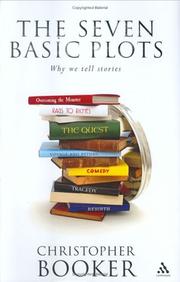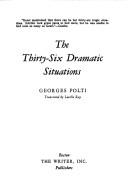| Listing 1 - 10 of 286 | << page >> |
Sort by
|

ISBN: 0826452094 Year: 2005 Publisher: London : Continuum,
Abstract | Keywords | Export | Availability | Bookmark
 Loading...
Loading...Choose an application
- Reference Manager
- EndNote
- RefWorks (Direct export to RefWorks)
Book
Year: 1964 Publisher: [Chicago]: University of Chicago press,
Abstract | Keywords | Export | Availability | Bookmark
 Loading...
Loading...Choose an application
- Reference Manager
- EndNote
- RefWorks (Direct export to RefWorks)
Book
Year: 1950 Publisher: Paris: Flammarion,
Abstract | Keywords | Export | Availability | Bookmark
 Loading...
Loading...Choose an application
- Reference Manager
- EndNote
- RefWorks (Direct export to RefWorks)
Book
Year: 2011 Publisher: [Place of publication not identified] : Project Gutenberg,
Abstract | Keywords | Export | Availability | Bookmark
 Loading...
Loading...Choose an application
- Reference Manager
- EndNote
- RefWorks (Direct export to RefWorks)
Book
Year: 2011 Publisher: [Place of publication not identified] : Project Gutenberg,
Abstract | Keywords | Export | Availability | Bookmark
 Loading...
Loading...Choose an application
- Reference Manager
- EndNote
- RefWorks (Direct export to RefWorks)

ISBN: 0871161095 Year: 1991 Publisher: Boston The Writer
Abstract | Keywords | Export | Availability | Bookmark
 Loading...
Loading...Choose an application
- Reference Manager
- EndNote
- RefWorks (Direct export to RefWorks)
Book
Year: 1912 Publisher: Paris : Mercure de France,
Abstract | Keywords | Export | Availability | Bookmark
 Loading...
Loading...Choose an application
- Reference Manager
- EndNote
- RefWorks (Direct export to RefWorks)
Book
ISBN: 0394729099 9780394729091 Year: 1985 Publisher: New York Random House
Abstract | Keywords | Export | Availability | Bookmark
 Loading...
Loading...Choose an application
- Reference Manager
- EndNote
- RefWorks (Direct export to RefWorks)
Fiction --- Plots (Drama, novel, etc.) --- Narration (Rhetoric) --- Technique --- Fiction - Technique
Book
ISSN: 12622850 ISBN: 9782745347749 9782745347756 2745347748 Year: 2018 Volume: 151 Publisher: Paris Honoré Champion
Abstract | Keywords | Export | Availability | Bookmark
 Loading...
Loading...Choose an application
- Reference Manager
- EndNote
- RefWorks (Direct export to RefWorks)
Dans un de ses romans, l’écrivain anglais E.M. Forster recommande de ne pas « acquiescer à la tragédie », c’est-à-dire de ne pas s’accommoder de la douleur au nom de la nécessité. L’auteur de Force, parole, liberté oppose la rupture tragique à la continuité du récit et montre que ces deux points de vue se déduisent d’une conception radicalement opposée du temps. Si la tragédie met en scène rituellement le sacrifice de l’individu afin de restaurer la cohérence collective, transcendant la mortalité singulière en créant une éternité fixe de la souveraineté, l’utopie du récit transmet au singulier un lieu de nulle part en incessante métamorphose. Le tragique revient sur le passé en quête de signes afin de résoudre la crise du moment présent. Le récit projette passé et présent dans son propre au-delà, celui du sujet étreignant le devenir afin de le modeler. Cette manifestation de la force subjective dans la parole fonde la liberté. Goethe parlait, dans le Premier Faust, de la « force de l’homme, par le poète révélée ».
Tragic, The, in literature --- Plots (Drama, novel, etc.) --- Drama --- Fiction
Book
ISBN: 0262570327 Year: 1972 Publisher: Cambridge (Mass.) : MIT press,
Abstract | Keywords | Export | Availability | Bookmark
 Loading...
Loading...Choose an application
- Reference Manager
- EndNote
- RefWorks (Direct export to RefWorks)
| Listing 1 - 10 of 286 | << page >> |
Sort by
|

 Search
Search Feedback
Feedback About UniCat
About UniCat  Help
Help News
News